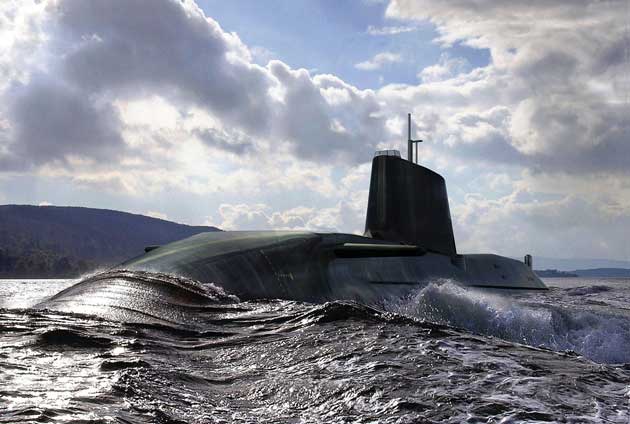MoD struggling to maintain aircraft and supplies to troops
Lack of staff could confine Britain's nuclear submarines to dock within 18 months, warns defence expert

Your support helps us to tell the story
From reproductive rights to climate change to Big Tech, The Independent is on the ground when the story is developing. Whether it's investigating the financials of Elon Musk's pro-Trump PAC or producing our latest documentary, 'The A Word', which shines a light on the American women fighting for reproductive rights, we know how important it is to parse out the facts from the messaging.
At such a critical moment in US history, we need reporters on the ground. Your donation allows us to keep sending journalists to speak to both sides of the story.
The Independent is trusted by Americans across the entire political spectrum. And unlike many other quality news outlets, we choose not to lock Americans out of our reporting and analysis with paywalls. We believe quality journalism should be available to everyone, paid for by those who can afford it.
Your support makes all the difference.The Ministry of Defence faces such a critical shortage of civilian staff, engineers and technical expertise that it is struggling to maintain its aircraft, and the supply of equipment to troops in Afghanistan and Iraq is under threat, leaked memos reveal.
Senior commanders are also warning that the nuclear submarine deterrent could be confined to docks within 18 months unless a shortage of submariners and nuclear technicians can be resolved. The revelations came to lightin the week that the civil service union Prospect began a High Court action claiming plans to cut 5,000 MoD jobs are illegal.
A memo sent last month from the head of the MoD's supply department reveals that the organisation is struggling to process urgent orders for land and surveillance equipment to be sent to troops in Iraq and Afghanistan. The memo calls for staff to be co-opted from other departments for 12 months to plug the gap, a move it admits is a "sticking plaster" solution.
A second memo, from the MoD's Aircraft Maintenance Policy Board, circulated widely in the MoD in May, warns that years of privatisation and staff cuts have left the ministry without the expertise to maintain its own aircraft.
"This paper argues that recent and future changes in the employment of crown servant engineers will soon leave the MoD unable to fulfil its intelligent customer remit and hence jeopardize airworthiness," it says. "[Engineering teams] are punch drunk with additional requirements... and there is evidence that they do not have the capacity to comply with existing regulations...."
Several crashes have been attributed by insiders to either a lack of know-how or loss of experience, most significantly the Nimrod aircraft which blew up in Kandahar, Afghanistan, after a fuel leak in September 2006, killing all 14 men aboard.
In a meeting with the victims' families earlier this year, the Defence Minister Bob Ainsworth admitted that a lack of trained engineers was responsible for the delay in bringing the remaining Nimrod fleet up to minimum standards.
There is also widespread concern at the shortage of nuclear engineers, with warnings that the Clyde nuclear base in Scotland will be unable to apply for a licence to operate unless the shortage can be addressed.
Earlier this month Commodore Chris Hockley, commander of the base, launched an 18-month review to address staffing concerns which will look at the possibility of privatisation.
Conservative MP Patrick Mercer, a former Army commander in Bosnia, said that naval officers had told him that Britain's nuclear submarine fleet would not be able to go to sea unless the shortfall in mariners was addressed. Steve Jary, National Secretary of the civil service union Prospect, said the MoD is "stretched to breaking point".
The MoD maintains that its aircraft, including the Nimrod, are safe to fly. "The Ministry of Defence does not comment on leaked documents," a spokesman said. "However, we recognise that there are a number of pinchpoint trades within the armed forces and are taking steps to mitigate any future impact through targeted recruitment campaigns and retention measures."
Join our commenting forum
Join thought-provoking conversations, follow other Independent readers and see their replies
Comments